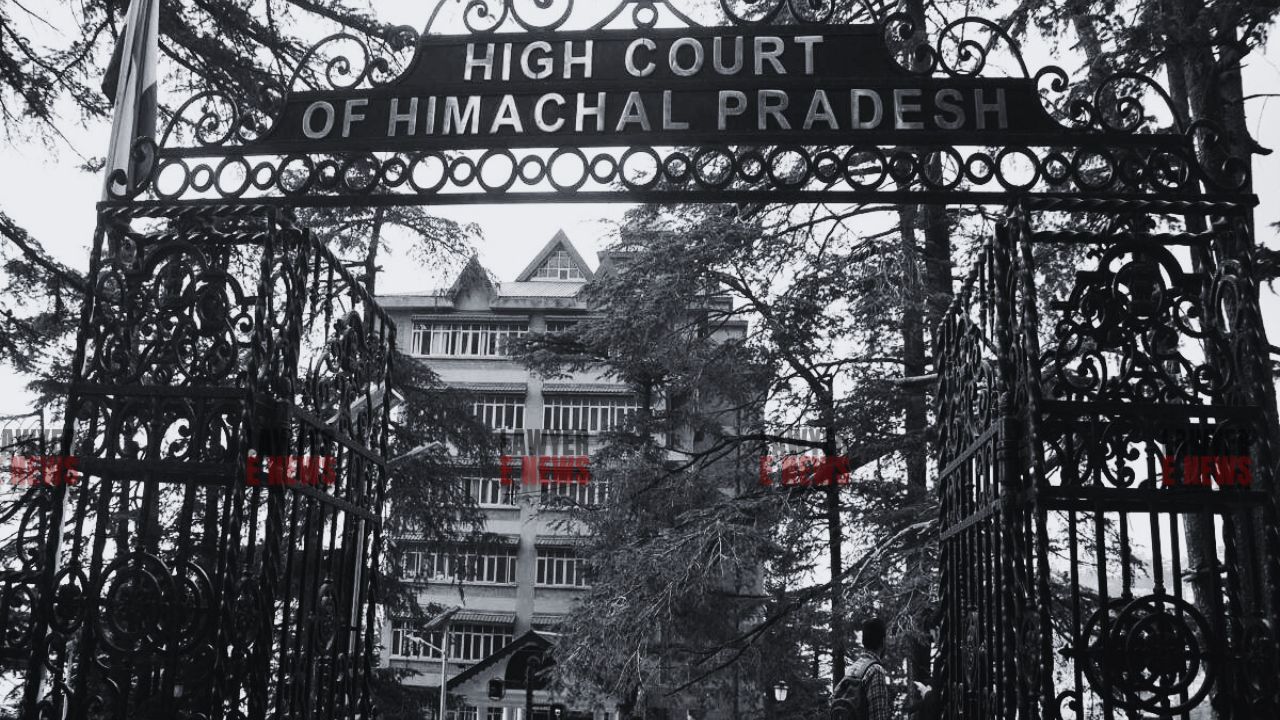-
by Admin
15 February 2026 5:35 AM



Himachal Pradesh High Court dismissed an appeal by Shehzad Ali Shah against his conviction under Sections 363 (kidnapping), 366 (abduction), and 376 (rape) of the Indian Penal Code (IPC) and Section 6 of the Protection of Children from Sexual Offences Act, 2012 (POCSO Act). The appellant had been sentenced to 10 years of rigorous imprisonment for the POCSO offence, with additional concurrent sentences for the IPC offences.
The bench of Justice Tarlok Singh Chauhan and Justice Rakesh Kainthla found no merit in the appeal and upheld the trial court’s judgment, affirming that the prosecution had conclusively proven the victim’s minority and the accused’s culpability.
Kidnapping and Sexual Assault of a Minor
The case originated from an incident on November 8, 2016, when the accused took the victim, aged 14, under the pretext of taking her to a doctor for stomach pain. Instead, he transported her from Solan, Himachal Pradesh, to Maharashtra, where he kept her for 20 days and repeatedly assaulted her.
The victim’s father reported her missing, and the police traced her and the accused to a fish market in Vasai, Maharashtra. A bed sheet seized from the premises was found to contain semen matching the accused’s DNA. The trial court convicted Shah of kidnapping, abduction, and sexual assault under the IPC and POCSO Act while acquitting him under the Scheduled Castes and Scheduled Tribes (Prevention of Atrocities) Act, 1989, due to insufficient evidence.
The appellant contested the victim's age, arguing insufficient evidence to prove she was under 18 at the time of the incident. The prosecution relied on her school admission record, which recorded her date of birth as March 17, 2002. The High Court held this record credible, noting it was prepared long before the incident and had high probative value.
Citing Jarnail Singh v. State of Haryana (2013) and Sanjeev Kumar Gupta v. State of U.P. (2019), the court reiterated that school records must be preferred over other evidence under the Juvenile Justice Act, 2015, and Rule 12 of the Juvenile Justice Rules, 2007. The defense’s claims of discrepancies in the school records were dismissed as unfounded.
The victim’s account, stating that the accused forcibly took her to Maharashtra and sexually assaulted her, was corroborated by multiple witnesses. Her father and sister testified about the circumstances leading to her disappearance and recovery. A key witness, Rinku, confirmed identifying the victim and the accused in Maharashtra.
The High Court emphasized that the victim’s testimony, corroborated by her Section 164 CrPC statement and forensic evidence, was credible and sufficient to establish the accused’s guilt.
Forensic analysis confirmed that semen stains on the bed sheet recovered from the accused’s premises matched his DNA. The court relied on Manoj v. State of M.P. (2023) to underscore that DNA evidence provides strong corroboration in sexual offence cases.
The appellant argued that the victim’s lack of resistance or hue and cry indicated consent. The High Court categorically rejected this defense, holding that under the POCSO Act, consent of a minor is legally irrelevant. The victim’s conduct during the abduction and in Maharashtra did not absolve the accused of liability.
The High Court concluded that the prosecution had proven its case beyond reasonable doubt. The victim’s testimony, supported by DNA evidence and corroborative witness statements, established that the accused had kidnapped and sexually assaulted the victim.
The court also upheld the sentences imposed by the trial court. The court found the sentences appropriate, considering the gravity of the offence and the victim’s age.
The appeal was dismissed, and the trial court's judgment was affirmed.
Date of Decision: January 2, 2025
